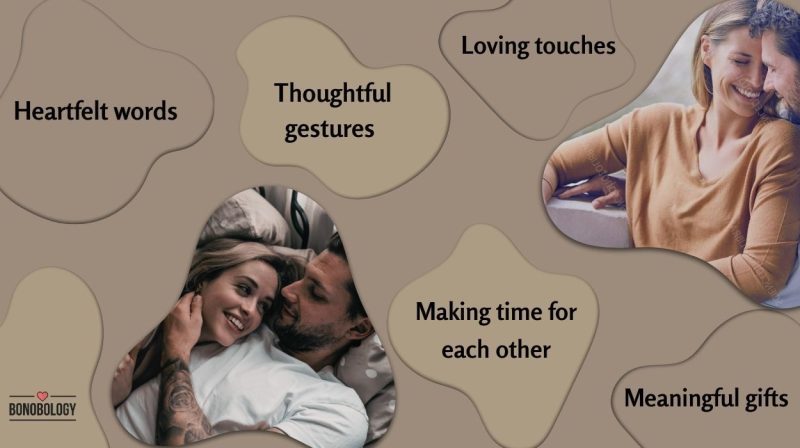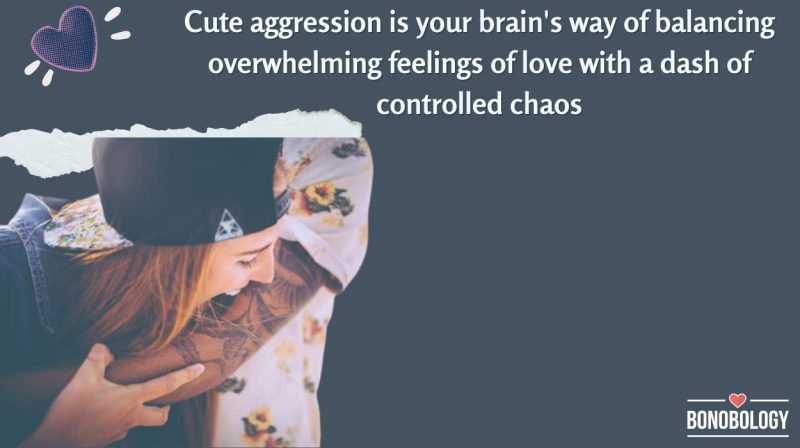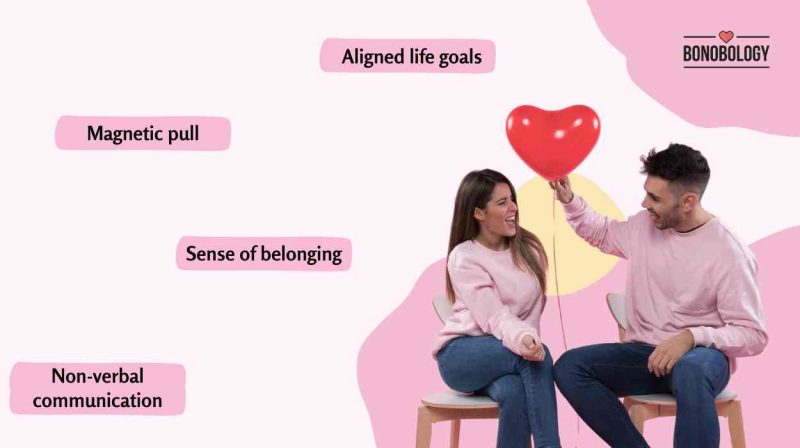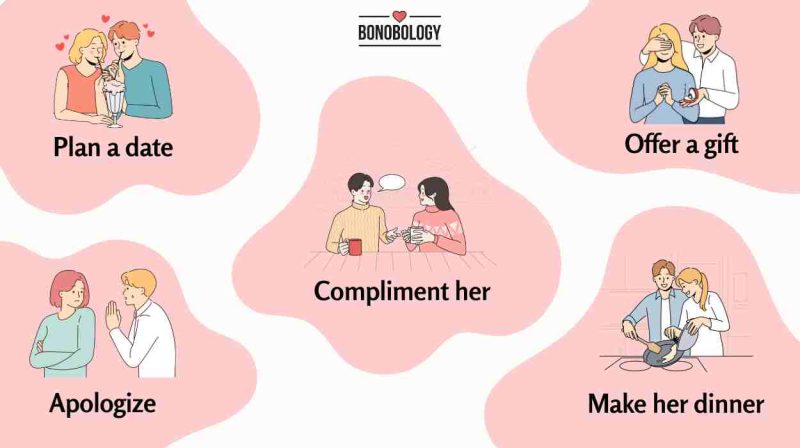How to get over commitment issues? If you’ve found yourself looking for answers to this question, chances are that your experience in relationships is a lot different than most others. Finding the one and creating our own happily ever after with them is a quest that most of us embark on with zest. It’s, after all, considered a monumental life milestone. For a person with commitment issues, the dynamics of finding a life partner or staying in life-long relationships are turned on their head.
To them, the very idea of being with another person for life can be a trigger for anxiety, fear and flight response. And not a source of joy or hopes and dreams. But what are commitment issues? What are the underlying causes and key indicators of fear of commitment? And what can you do when you have commitment issues?
Let’s address these questions in consultation with psychotherapist Gopa Khan (Masters in Counseling Psychology, M.Ed), who specializes in marriage & family counseling, to help you figure out how to get over commitment issues.
What Are Commitment Issues?
Table of Contents
The journey of getting over commitment issues begins with understanding what these entail and their impact on how you conduct yourself in relationships. So, let’s begin by examining what are commitment issues in relationships. When two people come together in a romantic relationship, and make a promise to practice emotional as well as sexual monogamy, stick by each other through the highs and lows of life, and express a desire to spend their life together – that’s commitment.
The inability to pledge yourself to another person to an extent that your lives are forever intertwined can be described as commitment issues in relationships. While fear of commitment is most commonly discussed in the context of romantic relationships, a person who grapples with commitment issues is likely to exhibit a lack of surety in every aspect of life too.
In friendships, it can manifest as an inability to keep up with promises and assurances. In professional life, it can mean saying no to long-term projects for the fear of being tied down in a particular role. However, commitment issues come out most strongly in intimate partnerships.
Ultimately, it boils down to fear of commitment to anything and is rooted in attachment style psychology. Someone with commitment issues will have an insecure attachment style, which can be classified into three types:
1. Dismissive-avoidant
When a person forms intimate relationships but keeps their partner at an arm’s length. They don’t want to start relying on their partner nor do they want their partner to depend on them. Describing this form of the root cause of commitment phobia, mental health therapist Gopa Khan says, “A person does not feel the need to spend time with their partner, treats the relationship on par with regular social friendships and does not prioritize needs of the partner. Often in such cases, the other partner has issues with the lack of ‘quality time’, leading to conflicts in the relationship.”
2. Fearful-avoidant
In this case, a person with commitment issues desires a committed, long-term relationship but is too scared to act on this desire for the fear of getting hurt. It can be described as the fear of commitment or the wrong person. Gopa shares an example of fearful avoidant commitment issues, “Meena is quite keen to get married. Her parents have introduced her to numerous people. Even though she wishes to get married, she is unable to make decisions and feels paralyzed with the fear that she may make the wrong choice.”
Related Reading: 10 Telltale Signs You Are Not Ready For A Serious, Committed Relationship
3. Anxious-preoccupied
This form of commitment phobia projects one’s insecurities and fears onto the other person. The affected person starts believing that while they want emotional intimacy and commitment in the relationship, their partner does not. Gopa believes the anxious-preoccupied inability to commit is quite common, especially among young adults.
“They are unable to trust their partners, come up with infidelity scenarios or can’t get over ‘why’ would anyone wish to have a relationship with them. As a result, are unable to fully commit themselves as they are waiting for the relationship to fail,” she explains.
Irrespective of its form and intensity, fear of commitment is almost always related to traumatic life experiences such as toxic childhood, growing up in a dysfunctional family, abuse, broken marriage and infidelity.
What Are The Signs of Commitment Issues?

Feeling a little unsure, a little nervous when committing to a partner or taking a big step in a relationship is commonplace and natural. So, what sets these apprehensions apart from fear of commitment? How do you know you need to do the work to stop having commitment issues and that what you’re dealing with isn’t just a case of cold feet? Look at these signs of commitment issues to know the difference:
- Fear of being tied down: You equate being in a relationship with losing your freedom and are overcome with fear of being tied down
- A threat to other relationships: Romantic partners seem like a threat to your friendships, social life and other relationships in your life
- Loss of interest: Any expectation of commitment from your partner instantly makes you lost interest in them. You start viewing them differently or may even find that you’re not attracted to them anymore
- Flings, not long-term relationships: Your relationship history is a string of short, fleeting dating encounters rather than long-term connections
- A lot of fish in the sea: You equate committing to one person with missing out on other ‘better’ prospects out there
- Can’t make up your mind: When asked for a commitment, you always ask for more time to make up your mind
- Treating relationships like pit stops: Relationships are like pit stops in your life’s journey. You cannot see yourself sharing your life with just one person
- Fear of getting hurt: You stop yourself from getting emotionally invested in a partner out of fear of getting hurt or being betrayed. Your fear of commitment is, in fact, a defense mechanism
- Scared of labels: When labels such as ‘girlfriend’, ‘boyfriend’, ‘fiancé’ or ‘spouse’ scare you, you’re undoubtedly failing the commitment issues test
- Not taking the next steps: Due to an inability to commit, you usually end a relationship before things get too serious
- Being non-committal: If not, you are happy to string the other person along without giving them definitive answers about the future
- No desire to be tethered: The thought of syncing your schedule with another person unnerves you
Related Reading: 25 Most Common Relationship Problems
12 Tips On How To Get Over Commitment Issues
Can you relate to the above description and signs of commitment issues? Do you desire a meaningful relationship but just don’t know how to make headway? Has your fear of commitment made your life lonely? Are you desperately looking for ways of getting over commitment issues? Does every relationship leave you wondering, “Why do I have commitment issues with everything”?
We can understand how debilitating commitment issues in relationships can be and how they can make your entire existence less fulfilling. The good news is that you’re not doomed to live with this pattern forever. You can turn around your love life by learning how to get over commitment issues. These 12 effective tips to get past commitment issues will help you make a start in the right direction:
1. Get off the dating scene to fix commitment issues
Yes, it may sound a little contradictory. How can you fix commitment issues by remaining single, you ask? Well, we are not asking you to become a hermit. But to break free from commitment-phobic relationship cycles, you need to take some time to reflect and introspect.
This will allow you to focus on learning how to develop a connection with another person without getting overwhelmed. To get over the fear of commitment to anything, Gopa suggests, “The best strategy is to stop putting pressure on oneself that one needs to be dating or be in a committed relationship because they are getting older or have friends in committed relationships.
“This will help you to look for the right relationship for you and not rush into the first relationship that comes your way only to end up repeating the pattern of an inability to commit.” For getting over commitment issues, you need to be okay with taking things slow, moving forward at your own pace, celebrating small wins along the way while not beating yourself for any failures.
2. Get to the root of your fear of commitment
How to get over commitment issues? You need to be prepared to do the inner work to get to the root cause triggering this problematic pattern. Commitment issues don’t take hold in isolation. There are underlying triggers behind the fear of commitment. Use your time off the dating scene productively by getting to the root of your fear of commitment.
Infidelity can be an underlying trigger for commitment-phobic men. Similarly, abuse or violence can lead to commitment issues in females. Were you in a long-term relationship that didn’t work out? Had a failed marriage? Was your childhood affected by your parents’ divorce? Have you experienced abuse or infidelity either firsthand or around you?
These could well be the reason why you developed a commitment phobia. If so, working with a therapist or counselor to deal with these underlying issues is the wise thing to do. Find the answer to that niggling question – why do I have commitment issues with everything – to be able to break your behavior pattern. If you’re looking for the right help to set yourself free from this crippling fear of commitment, skilled and licensed counselors on Bonobology’s panel are here for you.
Related Reading: Relationship Counseling – Everything You Need To Know
3. Be honest with yourself
Often, commitment-phobic men and women trick themselves into believing that they’re not in a long-term relationship because they don’t want to be. They start eulogizing the freedom, the maverick lifestyle where they can party till dawn and sleep around without a care in the world.
But does this lifestyle bring you real happiness? Or are you indulging in it to compensate for a void in your life? Address these questions honestly. As someone with commitment issues, you may find momentary solace and the perfect escape in a night of wild partying or a meaningless hookup but these experiences can leave you feeling hollow and incomplete.
So, take the time to figure out what it is that you really want for yourself? Do you really want to be single for life or have you made your peace with that possibility because it seems like the easier alternative to committing yourself to another person? To not let commitment issues in relationships govern the kind of life you lead, you need to be sure of what exactly you want from it.
4. Stop dating people you’re not interested in

Dating someone with commitment issues is never a pleasant experience. The “my girlfriend/my boyfriend has commitment issues” realization is heartbreaking, to say the least. Why put someone through it just so that you can have your two bits of casual fun?
Now that you’re trying to change your ways, start by putting an end to the tendency of going out on dates with people you’re not interested in. Or hooking up with someone with no intention of ever seeing them again. Focus your energies on understanding what kind of partner you want and making an effort to seek that person out. This will help you overcome the fear of being tied down.
Gopa says, “The key to getting over commitment issues is to avoid getting into relationships that you know have no future ahead. Getting into such relationships only augments the fear of commitment or wrong person, as you begin to feel they will never meet the right person. As a result, all the patterns of being commitment-phobic come into play and one only keeps repeating these problematic patterns.
“Hence, it is important to not get into the “loop”. Most people think that they are missing out when they are not in relationships when, in fact, such relationships have a detrimental effect on both partners. It leads the other person to feel rejected, unworthy, and makes the phobic partner feel that he/she is a ‘bad relationship’ person.”
Related Reading: 11 Tell-Tale Signs You Are In A Superficial Relationship
5. How to get over commitment issues? Work on self-esteem
Commitment issues also stem from poor self-esteem. Perhaps, you haven’t been in a long-term relationship because somewhere deep down you feel that no one will love you. Commitment issues in females, as well as males, can also result from self-esteem battered by past traumas.
Perhaps, you had overly critical parents who told you you were not good enough or had such high expectations of you that you felt that you could never match up. While these may seem harmless, these early influences can lead you to have a skewed perception of yourself, which impedes your ability to live a full life in many ways, including commitment issues in relationships.
So, work on transforming how you see yourself. A personality transformation can go a long way in changing your perception of the self. Hit the gym, learn a new skill, achieve new goals, soak up new experiences. Start appreciating yourself. According to Gopa, it is crucial to be able to live and accept yourself unconditionally. When you choose to have a healthy relationship with yourself, you are more likely to feel ‘secure’ on your own skin, open to new experiences, and welcome commitment.
“My favorite strategy to instantly work on self-esteem and self-love is to write daily one thing you are grateful for in your life and one thing you appreciate about yourself. By the end of the year, you will have at least 300 things that you are grateful for and 300 ways you respect and love yourself. Basically, you are learning to be your own best friend.” This can be one of the most effective exercises for commitment phobia.
6. Try some exercises for commitment phobia

If you’re working with a therapist, they will inevitably give you some exercises for commitment phobia. If not, you can try simple meditation techniques, deep breathing or chanting to rein in your insecurities and anxieties. The idea is to invest in self-care so that you can learn how not to be hyper-focused on the negatives.
Gopa says, “The best way to get over the fear of commitment to anything is to honor your commitments with family and friends. So, if you have promised your family to attend some family function, don’t back out last minute. If you tend to bunk your gym sessions or avoid going for your daily walks, focus on honoring those promises to yourself. As you start keeping promises to yourself, to your family, friends, living up to your own words, you are training yourself to work on your future relationships.”
As we said before, getting over commitment issues means committing yourself to take small steps toward unlearning your existing behavior patterns and replacing them with healthier ones. You cannot stop having commitment issues. So keep your expectations realistically and focus on short-term goals to see long-term changes.
7. Start depending on others to fix commitment issues
The one key theme of commitment phobia is that you are scared of leaning on another person for support, love and care. Perhaps, something in your past has taught you that counting on others is a surefire way to crash and burn. As a result, you started clamming up, to an extent that even the thought of getting close to another person feels crippling now.
So, how about changing that by depending on others and seeing how it feels? It doesn’t have to be a romantic partner. You can start small by relying on friends and family. Reaching out to them for support and help. The way you feel when they reciprocate can help you overcome the fear that depending on others will only cause you pain.
Exercises for commitment phobia can be as simple as accepting help that’s available or shunning your inhibitions and leaning on your loved ones for support. As you overcome the fear of being left to fend for yourself, you’d have taken the first step to get past commitment issues.
Related Reading: 5 Ways To Deal With A Guy Who’s Not Ready To Commit
8. Practice forgiveness to break commitment phobic relationship cycles
The boyfriend who knocked you up and vanished. The girlfriend who turned out to be the runaway bride. The parents who treated you like a pawn in the divorce settlement. The spouse who beat you to a pulp… You have to find a way to forgive the person or people who broke your heart – and possibly your spirit – for their own selfish gains.
The path of breaking commitment-phobic relationship cycles goes through forgiveness in relationships, both past and current. If you don’t heal what hurt you, you’ll bleed on those who didn’t cut you. It may well be the hardest thing to do, but trust us, it will set you free.
Gopa suggests that you can start writing letters (without sending them to the person addressed) on how you felt being with them, what hurt you, what were the good memories to be able to forgive them for your peace of mind. This introspection will help let go of the past hurts slowly.
“The idea is to forgive but not to forget so the same relationship patterns should not be repeated. If you are not the writing type, you can follow the ‘empty chair’ technique – place a chair in front of you and pretend the person who hurt you from your past is sitting there. You talk aloud about how the relationship impacted you. These exercises can be cathartic,” she adds.
9. Foster freedom-based relationships
If you want to overcome the fear of being tied down, you have to change your perspective and approach toward relationships. Instead of looking at it as something that will clip your wings, embrace it as a partnership that benefits both partners. More importantly, find yourself someone who shares your wavelength about the need for personal space and freedom in a relationship. This will give you the best of both worlds – a sense of fulfillment and independence.
Gopa says, “Another strategy to get over your inability to commit is to write down the kind of relationship you want. The qualities you are looking for and the red flags to avoid invasive relationships. This helps you to wean off unnecessary relationships and avoid getting into ‘dead-end’ romantic partnerships.”

10. Take things one step at a time
If notions like ‘forever’, ‘till death do us part’, ‘life partners’ and ‘soulmates’ overwhelm you and trigger a sense of panic, take these words out of your relationship equation altogether. After all, not all couples who make lofty promises of forever together succeed in that endeavor. Instead, take one step at a time approach to your relationship. Focus on the immediate reality rather than the distant future.
Gopa’s advice is to avoid ‘jumping the sack’ once you meet the potential partner. “Remember all relationships are based on trust and respect. Relationships born out of friendships have a much stronger foundation. So take the time to build a healthy friendship. This will also help you decide over time, whether you wish to ‘hang out’ with this friend for life,” she adds.
Getting over commitment issues becomes easier when you have a partner who understands where you’re coming from, can understand your triggers and is willing to take this forward at a pace you’re comfortable with. But for any of that to happen, you need to be willing to open up to them and share your fears and vulnerabilities.
Related Reading: Exclusive Dating: It Isn’t Surely About A Committed Relationship
11. Keep your expectations realistic
When you do get back on the dating scene, keep your expectations realistic not just about a potential life partner but also in terms of the standards you set for your relationship. If you set the bar too high, you will only be met with disappointment and dashed expectations. This will heighten your feelings of anxiety, panic and fear.
Remember that no one is perfect. Anyone you choose will have their share of shortcomings and flaws. Go in with an open mind and a willingness to accept a potential partner for who they’re rather than trying to fit them into a mold of your idea of an ideal partner. As long as your life goals and values align, be willing to make small compromises and adjustments along the way.
12. Be honest about your commitment issues
When you do find someone you can see yourself sharing your life with, be honest and upfront about fears and apprehensions. Dating someone with commitment issues isn’t easy and the other person has every right to know what they’re signing up for. Gopa says it is important to understand the commitment issues meaning in full earnest to be able to overcome them.
“Not being clear about commitment in a relationship is akin to ‘cheating’. It gives false hope to the partner and is plain selfish. If you are still ‘sitting on the fence’ about a relationship, then be frank about it to the other person rather than stringing them along on false hopes,” she concludes.
When you do feel ready, make sure you reassure them that you have done the work to overcome your fear of commitment and made some real progress. If they’re willing to hold your hand through the rest of this journey, you can truly turn over a new leaf. We hope these handy tips on how to get over commitment issues help you make some real progress.
FAQs
Commitment issues are almost always a result of your personal or perceived experiences. Perhaps, you were caught in an unhealthy relationship or saw toxic couple patterns in your parents or someone else in the family. As a result, you may have subconsciously started equating relationships with pain rather than happiness and fulfillment. This is the most common root cause of commitment phobia.
Yes, a commitment-phobe can fall in love. But even then, they may not be able to forge healthy relationships unless they do the necessary work to overcome their inability to commit.
To be able to handle your commitment issues, you need to understand the commitment issues meaning as well as the root cause that is triggering your fear of commitment. The next important step is to break free from the cycle of toxic or dead-end relationships. Take some time off to fix your issues before you put yourself out there again.
Confession Story: We Disciplined Love And Finally Got What We Wanted
Your contribution does not constitute a charitable donation. It will allow Bonobology to continue bringing you new and up-to-date information in our pursuit of helping anyone in the world to learn how to do anything.






















